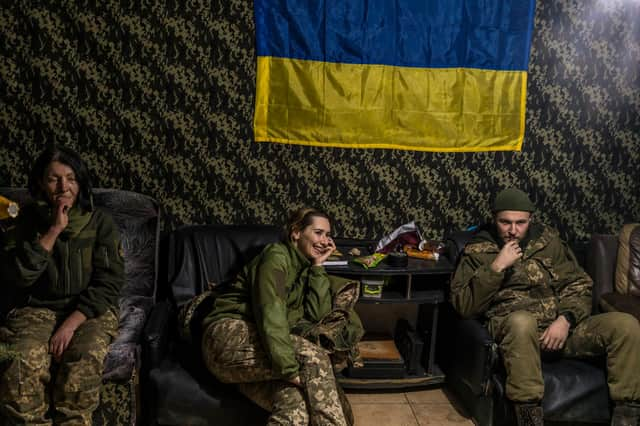Ukraine-Russia crisis: West must learn from mistakes made before Second World War – Angus Robertson MSP


Russia has massed more than 100,000 troops on the borders of Ukraine. Plots have been exposed to replace the democratically elected Ukrainian government. International embassy staff and families are beginning to leave the capital Kyiv as fears grow that military action could start at any time. European observers say the continent is closer to war than at any time since the Yugoslav conflict 30 years ago.
The context for the tensions is the influence that Russia wants to re-establish over neighbouring nations that were part of the Soviet Union and Warsaw Pact. President Putin has a long track record of regional intervention and destabilisation from the Caucasus to Moldova, Belarus and most recently Khazakstan. He has already annexed Crimea from Ukraine and supported armed rebels in the east of the country.
Advertisement
Hide AdAdvertisement
Hide AdThankfully there has been a flurry of diplomatic initiatives to try and avoid war in Ukraine. US Secretary of State Anthony Blinken has met his Russian opposite number Sergei Lavrov and EU foreign ministers have been meeting to consider joint approaches.
While the UK has made the right call to support the Ukrainians with defensive military assistance, there has been an absence of top-level diplomatic engagement, with Liz Truss preferring to be in Australia.
Western countries are wanting to show they are prepared to protect their allies that are close geographically to Russia. Denmark is sending F-16 jets to Lithuania, France is deploying troops to Romania, Dutch F35 aircraft are heading to Bulgaria and a Spanish frigate to the Black Sea.
These moves come ahead of a deployment announcement by the United States of troops, aircraft and warships closer to the region. Meanwhile the EU has announced a new macro-financial assistance package of €1.2 billion and the doubling of bilateral assistance this year, with another €120 million.
The last time that Europe was threatened with the present scale of conflict was in the 1930s. What started then as relatively low-key disputes about the Saar and Rhineland, escalated to the Austrian Anschluss, Sudetenland in Czechoslovakia, Danzig crisis and then Poland itself.
Mistreatment allegations about minorities were a key propaganda theme before false flag operations preceded a full-scale invasion. Eight-four years ago, UK Prime Minister Neville Chamberlain described the Sudeten dispute as a “quarrel in a far away country, between people of whom we know nothing”. That was the excuse for not standing against naked aggression, threats, territorial ambitions and attempts at regional hegemony.
While there is no direct comparison with the Europe of the 1930s, we must not forget the lessons of history. When bullies think they can get away with unacceptable behaviour they often carry on bullying.
The end of the Cold War and the Soviet Union meant that nations were free to make their own decisions. Ukrainians have made clear that they would like to be in the European mainstream of economic success, pluralistic democracy and common security. President Putin doesn’t want that for Ukraine, it might, after all, give people in Russia ideas.
Advertisement
Hide AdAdvertisement
Hide AdWhat we are witnessing with Ukraine is not a quarrel in a far away country, between people of whom we know nothing. We know full well what is going on and Russia should cease and desist from its aggression.
Angus Robertson is the SNP MSP for Edinburgh Central and Constitution, External Affairs and Culture Secretary
A message from the Editor:
Thank you for reading this article. We're more reliant on your support than ever as the shift in consumer habits brought about by coronavirus impacts our advertisers.
If you haven't already, please consider supporting our trusted, fact-checked journalism by taking out a digital subscription.
Comments
Want to join the conversation? Please or to comment on this article.
